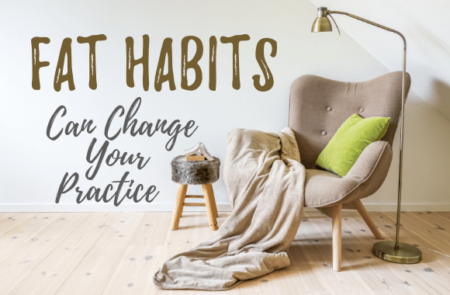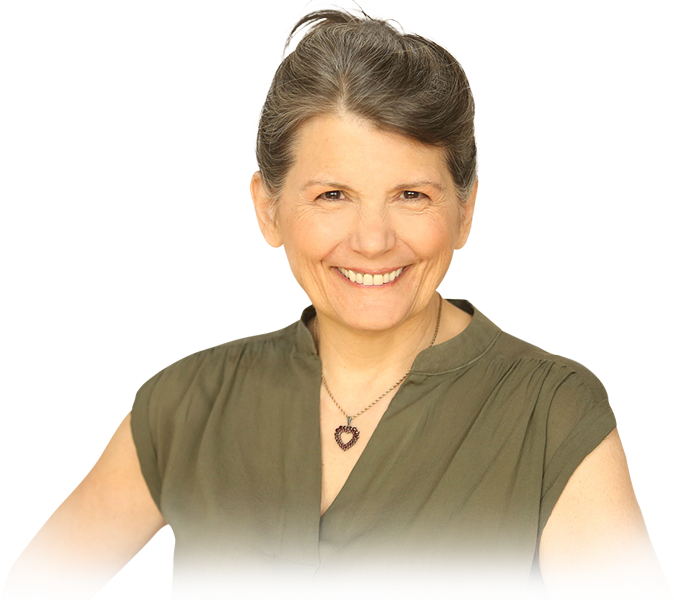 It’s hardly a perfect habit, but when I remember and have time—and the dogs aren’t bugging me for breakfast—I like to spend time in the morning reading and thinking about how new ideas I come across have relevance for me and for you.
It’s hardly a perfect habit, but when I remember and have time—and the dogs aren’t bugging me for breakfast—I like to spend time in the morning reading and thinking about how new ideas I come across have relevance for me and for you.
Today I was reading Atomic Habits by James Clear. It’s the kind of book you can read one bit at a time and think about for quite a while, so it didn’t surprise me that within a couple of minutes, I was talking to myself about the connections I was making to building a local practice!
Clear generally covers a lot of ground in a few sentences, but I zeroed in his points about habit formation and how they make us feel:
One reason we form habits is that they make it easier for us to fit in with the people we associate with most often. We become like others so that we don’t stand out. Everyone is more comfortable. We feel like we belong.
That explains why my parents were so baffled when I came home from summer camp at age 10 with a “foreign” accent—we lived in Connecticut and many of my fellow campers were kids from Brooklyn who were escaping to the country for a few weeks. I didn’t even notice that I sounded like New York when I went home, or that over the next little while, I settled back into my usual Connecticut twang.
That same kind of habit drift happens in training programs and collegial communities. Most practitioners I’ve worked with have a great desire to belong, and that makes it really important to fit in. It’s often easier to adopt the view of the people around you than it is to become the tall poppy and set yourself apart from your peers. This is especially true if it happens below the surface so that you don’t recognize that you’re doing it without paying much attention to it.
FAT habits aren’t about your weight
We all have habits of feeling, acting, and thinking. I call them “FAT habits” and like pretty much every habit, their function is to limit choice.
Honestly, I don’t think that’s always a bad thing.
But when habits affect your ability to build a sustainable business and lead to helping only a fraction of the people you’re here to serve, it pays to see where they’re hiding.
As with any habit, the first step in reclaiming autonomy and choice in situations where we aren’t getting what we want is to become aware that we’re engaged in doing something we don’t think about or question.
First, find a habit
Let’s face it—if it were easy to ferret out harmful habits and replace them with useful ones, we’d all be doing exactly what we want—all the time.
So since that’s obviously NOT the case, buckle up!
I’m creating an assessment to help identify habits that help and habits that get in the way of practice-building. Each pair or habits below is pulled from that assessment, and each has the possibility to enhance your efforts to earn a living or make it more difficult.
How would you rate yourself on these FAT habits? Which one in each pair is more true for you?
- I think that I’ll probably always be relatively poor as a practitioner. /// I think that if I learn the skills I need to have a business, I can earn a good living.
- I am uncomfortable being seen and I hide as much as possible. /// I am willing to be visible, even it means working on myself to overcome my fear about it.
- I wait for others to start the conversation. /// I am okay with speaking to someone I don’t know and committed to making it easy.
You’ve probably guessed that the first habit of feeling, acting or thinking in each pair is not helpful in building a thriving practice, and the second is.
If the first statement in any pair feels more like you, make the choice to investigate that. Find out what effect it’s having on your practice. Ask yourself how you could change it. Make a plan to do exactly that and follow through.
Focus where it matters
Building a great practice relies on recognizing which habits are stopping you and choosing to form new ones that move you forward.
The more you focus on finding the ones that aren’t serving you, and doing what it takes to change them, the better-equipped you are to get a practice that looks like your dream.
~~~~~
Was this useful? Get more like this delivered to your inbox way before it shows up here! Just subscribe and I’ll take care of the rest!
If you aren’t a part of our Transformational Touch Facebook group yet, we’d love it if you clicked that link and joined us!

